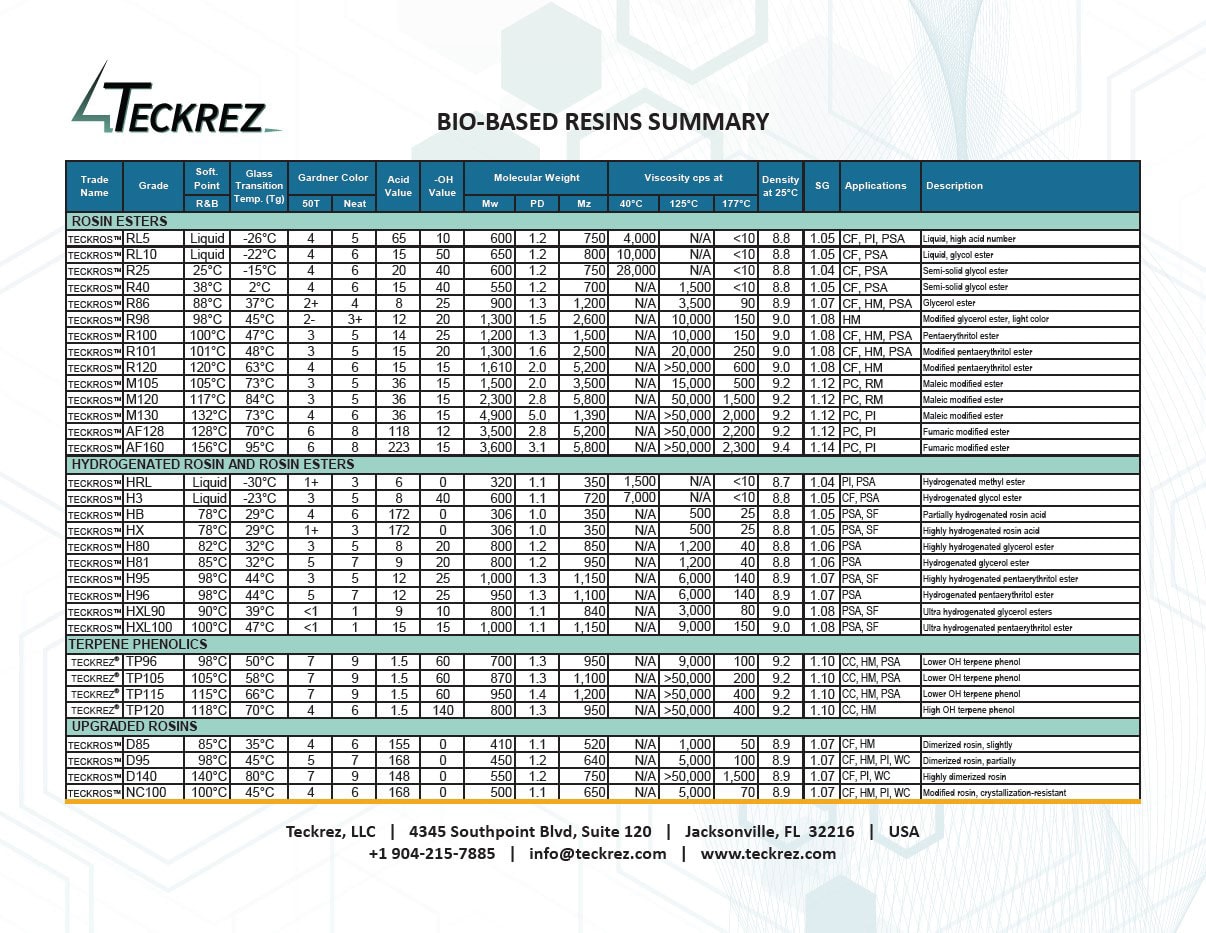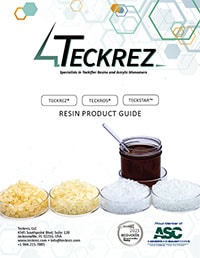TECKROS® Bio-Based Resins

Bio-Based Resins
Bio-based resins have a wide range of applications such as in packaging materials, automotive parts, adhesive, coating, and construction materials.

Rosin Esters
Rosin esters are formed by the esterification of rosin with a variety of alcohols in the presence of a catalyst which improves properties and stabilization. The resulting rosin esters are used as raw materials in the production of adhesives, coatings, and other products.
Hydrogenated Rosins and Rosin Esters
Hydrogen atoms are added to the rosin molecular structure under high pressure in the presence of special catalysts to eliminate double bonds and provide the most stable form of rosin. The resulting hydrogenated rosin is used in many applications where the high acid value is desired or it can be esterified with alcohols, the same as with other Rosin Esters.
Terpene Phenolic Resins
Terpene phenolic resins are a type of resin that is formed by the reaction of terpenes and phenols in the presence of an acidic catalyst. Terpenes are naturally occurring hydrocarbons found in many plant species, of which pine trees are predominant for resin use. Phenols are a class of compounds that contain a hydroxyl (-OH) group attached to an aromatic ring. The resulting terpene phenolic resins are highly polar with very low molecular weight which make them useful in a variety of industrial adhesive and other applications.
Upgraded Rosin
The chemistry of upgraded rosin involves the modification of the rosin molecule to improve its properties without esterification so the high acid functionality of rosin is retained. Modified rosins have a variety of unique properties that make it useful in a wide range of applications, from adhesives and coatings to inks and plastics.


